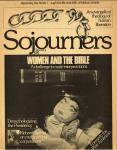Yet another theological declaration has been added to the growing number of such statements in the past few years which attempt to deal with the difficult questions involved in the church’s relationship to the world. This most recent contribution has been entitled “The Boston Affirmations” and was issued by a 21-member task force of the Boston Industrial Mission, a church sponsored inner-city group set up to raise issues of ethics and social justice in the Boston area. The “Affirmations” express a deep concern over trends in the churches toward a personal piety and a world denying (or ignoring) transcendence which chokes off meaningful and costly action in the world on behalf of justice and liberation. The diverse collection of pastors, community organizers, political activists, and teachers who composed the statement went on to lay a theological foundation for radical Christian involvement in the struggles of history.
Many have already described the effort by the Boston group as a counterattack to the much publicized Hartford “Appeal for Theological Affirmation” which was issued about a year ago. The Hartford Appeal vigorously attacked 13 “false and debilitating” theses that were alleged to have captured much of the contemporary theological discourse. Specifically attacked was the trendiness of modern theology whose weak basis and shallow root age is often evidenced in a rather obvious accommodation to secular and humanistic thought forms. Hartford was a call for a recovery of transcendence in theology and expressed the conviction that “the world should not set the agenda for the church.” The Hartford Appeals have been charged, among other things, with contributing (perhaps unwittingly) to those conservative religious forces in the churches that would define the personal and transcendent character of faith in ways that obscure and militate against the radical social and political character of faith as fleshed out in the life of the world. The fact that the Hartford group was all-white, all-male, and quite well connected in established church circles didn’t increase the critics’ confidence in their social sensitivities and neither has the diminishing political protest and radicalism of many of the signers.
If the Hartford Appeals served to remind that the church is not to be “of” the world, the Boston Affirmations will help remind that the church is sent “into” the world. The Boston group also demonstrated a concern for transcendence in seeing the initiative and revelation of God as the origin of all theology but stressed that any genuine Christian theology must become incarnational in the life of the world. The Affirmations innumerate and comment upon traditional theological themes and categories: creation, fall, exodus and covenant, prophecy, wisdom, the new covenant, church traditions, and ends with a section entitled “present witness” which identifies those events and people which, in our own day, “exemplify or discern the activity of God.” They list the struggles for justice among the poor, the drive for “ethnic dignity,” the efforts of women to overcome sexist oppression, the opposition against the idolatries of civil, religion and military might, new commitments to the city, to political honesty and openness, to the cause of the elderly and sick, to mutuality and fidelity in family life, etc.
Harvey Cox, one of the signers, said he would have preferred the statement to be more specifically Christ-centered (the lack of a strong Christology being one of his chief objections to the Hartford statement) and thought that the resurrection and the role of the Holy Spirit might have been emphasized more. “At a time when pentecostal phenomena are spreading so rapidly it seems important to emphasize the role of the Spirit in liberation and structural change rather than solely in the inner personal life as the charismatics tend to do.” A deeper consciousness of the political meaning of the church itself as the new community and the role of that faith community in the process of history and social change would have added strength to the statement as would a clearer understanding of the radical social consequences of biblically defined evangelism that issues in “making disciples.”
Max Stackhouse of Andover Newton, who was the shaper of the final document, and the other signers ended their declaration with a clear call to recognize and extend the “present witnesses” to God’s activity in our troubled times.
"On these grounds, we cannot stand with those secular cynics and religious spiritualizers who see in such witnesses no theology, no eschatological urgency, and no Godly promise or judgment. In such spiritual blindness, secular or religious, the world as God’s creation is abandoned, sin rules, liberation is frustrated, covenant is broken, prophecy is stilled, wisdom is betrayed, suffering love is transformed into triviality, and the church is transmuted into a club for self or transcendental awareness. The struggle is now joined for the future of faith and the common life. We call all who believe in the living God to affirm, to sustain and to extend these witnesses."
Jim Wallis is editor-in-chief of Sojourners.

Got something to say about what you're reading? We value your feedback!
